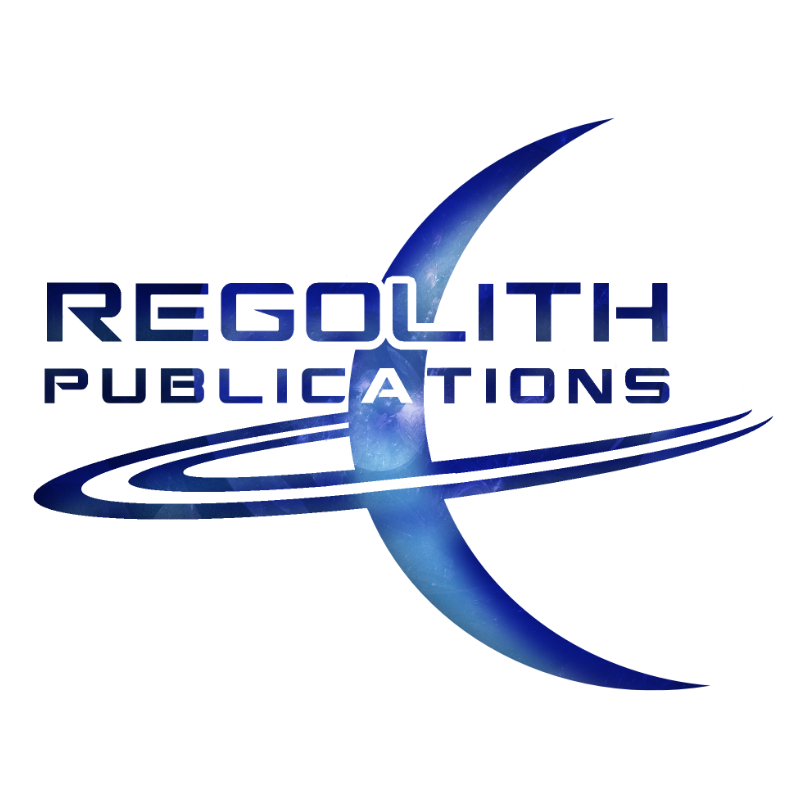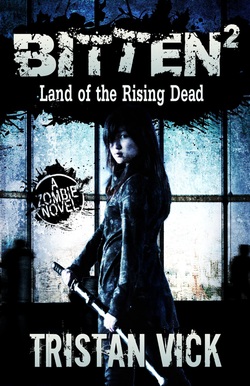 My novel Bitten A Resurrection Thriller and the sequel Bitten 2 Land of the Rising Dead, are both on sale for Kindle and Nook. ONLY $0.99! That's so affordable your couch could buy it for you! Just go over to the couch, rummage through its cushions, and ask it really politely, and heck, you might find enough loose change to make your happy e-reading dreams come true! Happy hunting! Bitten A Resurrection Thriller (Amazon/Kindle) Bitten 2 Land of the Rising Dead (Amazon/Kindle) Bitten 2 Land of the Rising Dead (B&N/Nook)
0 Comments
There is a Buddhist Zen parable about the teacher Zengetsu, from the Tang Dynasty (China), who wrote down twelve maxims for his students to reflect upon. Basically one maxim for each month of the year. I have collected them and have broken them down even further, by topic, to get fifteen total.
These fifteen Zen maxims cover moral and social etiquette, and serve as an organized list to think about improving oneself--sort of a Ten Commandments, except that unlike the Mosaic Commandments found in the Bible, these Zen maxims actually do deal with morality in a practical way which can be applied to our lives. You might even call them The Zen Commandments. Zengetsu's Fifteen Maxims 1. When witnessing the good action of another encourage yourself to follow his example. 2. Hearing the mistaken action of another, advise yourself not to emulate it. 3. Even though alone in a dark room, be as if you were facing a noble guest. 4. Express your feelings, but become no more expressive than your true nature. 5. Poverty is your treasure. Never exchange it for an easy life. 6. A person may appear a fool and yet not be one. He may only be guarding his wisdom carefully. 7. Virtues are the fruit of self-discipline and do not drop from heaven of themselves as does rain or snow. 8. Modesty is the foundation of all virtues. Let your neighbors discover you before you make yourself known to them. 9. A noble heart never forces itself forward. Its words are as rare gems, seldom displayed and of great value. 10. To a sincere student, every day is a fortunate day. Time passes but he never lags behind. Neither glory nor shame can move him. 11. Censure yourself, never another. 12. Do not discuss right and wrong. Some things, though right, were considered wrong for generations. Since the value of righteousness may be recognized after centuries, there is no need to crave an immediate appreciation. 13. Live with cause and leave results to the great law of the universe. 14. Pas each day in peaceful contemplation. 15. Living in the world yet not forming attachments to the dust of the world is the way of a true Zen student.  Japan is famous for the image of the salary man (i.e., business man) or politician falling asleep at work. Usually at his desk. While western people may find this odd, sleeping while on the job is surprisingly common in Japan. It's so common in fact that the Japanese have a word for it. It's called inemuri (居眠り) and translates to "sleeping while present." Japan has a sleeping @ work culture. But before we conclude that the Japanese are slacking off, it helps to understand a bit about Japanese culture first. Many Japanese pride themselves on an extreme work ethic born out of the corporate boom of the 80s when companies like Panasonic, Sony, and Toyota rose to be the leaders of their respective industries. Even today, most Japanese workers do not easily accept anything less than perfection, so this perfectionist-mindset, you might call it, often lends to a great deal of personal fatigue. That's only part of it, however. On top of frequently pushing themselves to exhaustion, Japanese people will often work extremely long hours too. Nowhere is this seen better than when we look at Japanese public schools. School teachers in Japan work 12 hour days on average. They work weekends most of the year. An unlike teachers in many Western countries, they don't get summers off. Salary men (business men) will also work around 10 and 12 hour days on average. But when it comes to "crunch" time to finish a project or complete a report, many workers will pull 16 and 17 hour shifts. When I used to teach business English at HONDA, I could always tell by their faces when my students were run ragged by a mandated "crunch". Some of them, who lived out of town, would have to rent a nearby hotel to get four or five hours of sleep, since driving two hours home only to take a shower and drive two hours back to work was out of the question. In fact, Japanese workers are so work obsessed that the idea of a dedicated workhorse ethic it even dictates how they sometimes use their language. As Japan-Talk.com points out: "When people say goodbye to their coworkers in the evening they don't say "have a nice night" or "have a nice weekend". They say "otsukaresama deshita". This can be literally translated as "you are tired, sir". It's the nicest thing you can say to someone after a long day of work — that they are tired. More than this, perhaps, is the fact that sleeping while at work is also largely considered a statement. It's a statement about the long hours you put in, the amount of work you are doing, your status in your company, and how indispensable you are (more on this in a moment). There are other contexts for inemuri as well. College students who cram for exams during exam week will often pull all-nighters just to study for a single test the following day. They call this form of studying "Going SPARTAN" as it is a 'study or die from exhaustion' type of mentality, named after the real Spartans who fought to the death. Once having taken the exam, however, the remainder of the day will be utilized to take as many cat-naps as possible and catch up on their much needed sleep. Usually doing a bit of inemuri in each of their subsequent classes until the bell rings and school is out, at which time they will pull another all-nighter as they cram for tomorrow's next big exam. High school students can be seen power-napping on the train to and from school. Many high school students in Japan head to school on the train at 6 and 7 am. Fraught with fatigue from attending school all day only to head off to club activities till 6 pm after which they head to evening cram school and, finally, staying up late into the morning hours playing video games or texting on their cell phones--Japanese students are frequently sleep deprived. In my days as a TESOL teacher and ALT here in Japan, I noticed that many of my Vice principals would take a bit of inemuri every single day. Something a lower status worker might get chided for if they were abusing their nap privileges. In Japan it is not surprising to see people pass out due to exhaustion. I've seen my co-workers and students suffer from exhaustion on a regular basis. While teaching in Hiroshima, I'd see at least one or two students pass out each month. I've seen my co-workers pass out on numerous occasions too. While in America, where I'm from, people have come to accept mental health days as a necessary aspect of maintaining company morale, here in Japan such 'personal time' is viewed unfavorably. In Japan, taking 'sick days' or 'personal vacation days' is usually taken to mean you're slacking or trying to back out of your duties--since much of Japanese work and school culture is about communal cooperation. Which is why people who might be a little under the weather might push through it and show up to work when they should probably be at home resting--but will take any available opportunity to exercise a bit of inemuri. While it certainly isn't healthy, they proudly wear their bouts of exhaustion like a badge of honor. Passing out from exhaustion isn't a sign that you're weak, it's a sign that you have pushed yourself to the limit and were only defeated by the fact that you're not a tireless robot. Inemuri is usually seen as a good thing in Japan. It means you've been working hard, and so most of the time people leave the power-napper alone. But not just anyone can get away with sleeping at work. Sleeping at work isn't just for the overworked, it's also a sign of who carries the highest amount of respect and most important or vital position. Seeing your boss napping during business meetings, for example, is also common. But it is often hard to tell whether one is engaging in a bit of inemuri or if they simply are trying to concentrate hard. In Japan, making eye-contact is not a form of social etiquette, so closing ones eyes to listen intently isn't viewed as disrespectful like it would in a big corporate meeting in the west. As such, you can see important figures head as well as Japanese politicians often close their eyes and bow their heads in meetings to listen more intently to what is being said (see above picture). Although, to be frank, they sometimes do fall asleep while trying to focus, but because of their high position and important status, it often go ignored and be written off as a harmless bout of inadvertent inemuri. Needless to say, the higher up the chain of command you are, the more likely you are to get away with a bit of inemuri. Your boss, for example, is more apt to be caught napping than anyone else. The head of an entire division at the company, a CEO, or school super intendant, for example, will also likely be able to get away with some frequent inemuri. Getting away with it, so to speak, really depends on whether or not you are indispensable to the company. If not, prepare to be scolded. Or, as my tanto (advisor) used to frequently remind me, "time is money." In other words, there's no time to nap if you're on the lowest rungs of the totem pole. Many office workers who do not have vital position or any privilege will wait until their lunch break to nap at their desk. Others will wait until they get on the train to let themselves catch a quick cat nap, which is why you can frequently see salary men here in Japan sleeping on the train next to high school girls (both engaged in inemuri). In other words, you have to earn the right to power-nap in Japan, not only by working hard but by making a big show of it. Personally, I find the rigmarole of knowing precisely when it's allowed or not allowed too much work, and far too exhausting, for me personally, which is probably why I've never felt the urge to power-nap at work.  I have been meaning to write an entry on writing styles and tense for a few weeks now. Novelist Rhiannon Frater actually beat me to it on her personal blog, defending third person writing style as the more versatile style, listing the pros and cons of both. Likewise, I wanted to take a few moments to talk about why I think third person past tense is a more realistic style to write in, and why, in my opinion, first person present tense should be avoided whenever possible. Now, as Frater observed, much of today's YA lit is relying rather heavily on the first person narrative. As a writer, I have to say, I think this is probably a bad thing. Not only does first person severely limit your vocabulary to the types of thoughts you have, your plot is restricted to the singular point of view. Namely that of the character's own POV. The difference between first person and third person is obvious. As third party observers, we actually view the world in third person. And as things happen, they pass us in time, so we ever only ever translate real world events or experiences we have into past tense. Which means, third person past tense is the natural way to frame a narrative that involves us as the observer. Observer here could be synonymous with reader, since all a reader is is someone who uses language to piece together the events of another's experiences, either the characters in the narrative itself (fiction) or from the author's own personal experiences (in the case of non-fiction). This is why I feel it makes the most sense to write in the third person, past tense. More than this perhaps, the first person past tense doesn't make much sense as a real world experience except in the form of a monologue or a letter. What does this mean for a novelist? It means you either have to have a very cerebral and talkative protagonist or else you have to be good at carrying a plot through the structure of letter writing. But there is a natural tension t resist such stories, because unless we get deeply involved with the main character and their POV, the story will always remain somewhat superficial, at least in the sense that we are ever keenly aware that this is not how we actually view the world. Don't get me wrong. I am not saying I don't enjoy the occasional YA read, but when I read YA I prefer third person to first, mainly because it pushes the writer to think more about the characters and the world they are writing about, and this tends to push the writer to strive to do better than merely letting their stream of conscious become the narrative of their protagonist. Indeed, it forces the writer to use a wider set of skills. Writing in the third person means you have to step out of your head and think about the connections of the story as you weave it all together. It's not as simple as A to B, A to C, or A to D (first person). It's, technically speaking, much more involved. It's A to B and B to A. It's A to C and C to A. At the same time, it's B to C and C to B. C to A and A to C. All of these multiple perspectives are required in order to write third person. As you can see, it involves far more foresight by the author, and far more skill in getting everything to mesh. Some might say they felt that the first person narrative really drew them in, but this isn't a comment on readability but rather it is a comment about how their own thoughts synced up well with the author's unique way of thinking. Now I want to explain why first person present tense bothers me. Let's consider Suzanne Collin's YA masterpiece, The Hunger Games trilogy. These books were great, and I'll be the first to defend Collins' work as first rate literature, yet here's the big BUT you knew was coming. But, OMG!, she wrote it in first person PRESENT tense. I could never get comfortable with the tense. Not because the author was inept in the style she was utilizing, since to the contrary, Collins is a far more experienced writer than I am, and I have nothing but respect for her, but because nobody *actually narrates every waking second of their life. It's simply unrealistic to do so. What we do in reality is have thoughts, then long bouts of day dreaming or staring vacantly out at the sky, and our thoughts all but fade away into our subconscious, and in these times where our thoughts recede our mind goes blank and we have moments of zen. These moments haven whenever we veg out in front of the TV or while surfing the web or while listening to good music. Have you ever watched a funny cat video on YouTube and narrated it to yourself in real time? Probably not. Wouldn't it be strange if people actually did that? And here's my complaint. People DON'T actually do that. They only do that in novels that are written in first person present tense. Which is weird. So I find a lot wrong with that particular style coupled with that particular tense. I will most likely avoid first person present tense as the vehicle to narrate my own stories, unless somebody is throwing money at me to do so, in which case, I would happily oblige. But otherwise, I will probably avoid coupling those two in the foreseeable future. Meanwhile, I think if you want to push yourself as a writer, and try something real challenging, try writing a novel with fifty-two characters, from multiple perspectives, various personalities, and on top of it all throw on an intricate plot of interweaving story lines, then get it all to gel. I feel that managed as much with my novel Bitten: A Resurrection Thriller, and although it challenged me in almost every way, I grew more as a writer from this one book than I would have had I stuck to simple first person storytelling. That I am sure of. Just some food for thought, you know, if you're an aspiring writer. 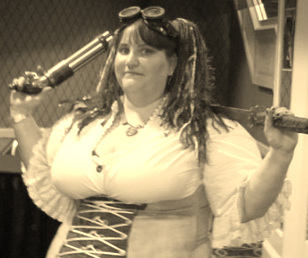 This past week I sat down with the lovely and talented author Tonia Brown, who I must admit I have a secret crush on, and candidly talked about all things of interest. We discussed her next book projects, how she researches before she writes a new novel, zombies, westerns, movies, and yes, even naughty naughty sex. So if you’re offended by the Rabelaisian ramblings of two adults with a bit of a kink for ribald fun, please, do not read the following discussion. The following is meant for mature readers only. However, if you like books and sex (not necessarily in that order) then by all means proceed. INTERVIEW WITH AUTHOR TONIA BROWN Tristan Vick (TV): When I open your blog I love the fact that explicit content warning pops up. It usually almost always means porn. But then I see your books and am like ... hehehehehe ... and once the giggles subside I browse through your blog posts and find that you have sort of a fondness for sex and a healthy sexual expression yourself. So my first question is: what is it about sex that fascinates you? Tonia Brown: Ha! That is a hell of a question, hon. I was raised fairly sheltered, and in fact married as a virgin. When I finally got a chance to explore my sexuality, I was in my first and only committed relationship. My husband gives me a lot of room, within reason of course, and puts up with a lot of experimenting. (Again, within reason, as he puts is. Haha!) I think perhaps coming into my sexuality as an adult rather than experimenting as a teen has left me with an adult fascination with it as a topic. Plus, I have a tendency to obsess about stuff I love. And who don't love sex? Be it by your onsies or with the one you love, it just does the body good, ya know? TV: It seems you're pretty liberal (and open) when it comes to your sex life. I admire that, and I must say, your husband must be hell of a man to respect and love you for who you are. You use sex in many of your novels, sometimes as a plot and sometimes as a theme, and I think this is where we are similar as writers (other than the genre we both write in--which is also similar). In your book Lucky Stiff you have a character which is, shall I say, a sex professional? How did you come up the idea with the plot and what was the inspiration behind the character Peter Lyle? Tonia Brown: Everyone wants to know about my Peter. Ain't he grand? Lucky Stiff was the result of two different things at that time in my career. First, I was asked to write a zombie erotica by a small publisher. I took the job only on the condition that it wasn't the zombies getting their smack on, because I didn't think I could pen such a thing. She vehemently agreed. (She just wanted a book with both sex and zombies.) As I wrote it--the book was called The Blooming, by the way--I began to wonder what conditions I COULD write a zombie having sex under. Voodoo became the obvious choice. The second thing that brought it about was a romance company had just put a call out for zombie erotica as well, so I penned Peter just for them, which is why it is explicit with a 'happily ever after' ending. (They like that sort of thing) But after I was done I found I overshot their mark by 30k words. Ooops. Peter found a home with another company which went under, so now he is back in my hands. Where he was always meant to be. TV: You write about another 'sentient' zombie in in Badass Zombie Road Trip. What is it about the icky old brain-dead zombies you don't like? And why do you say, as you do above, that you don't think you could pen such a thing at that time? Was there something that put you off classic dead-head zombies, or did you just want to break the mold? Tonia Brown: Oh it wasn't the traditional zombie that put me off. It was the traditional zombie fucking his brains out that put me off the idea! Ha! As for sentient zombies, I love to write them because they are different. There are SO many post-apocalyptic zombie tales out there, I just want to give folks something a little different to read. And there is the fact that talking zombies make for great dialogue. Still, I have written my fair share of traditional zees. Skin Trade and The Cold Beneath are both pretty straight up zombies, it is the situation of the novel that is unusual. Oh, and that also goes for my upcoming Gnomaggedon. It has traditional flesh eating, virus created zombies. But it takes place in a fantasy world, and the zees are all gnomes. Well, mostly gnomes. (That is DnD gnomes, not lawn gnomes.) [*DnD = Dungeons and Dragons.] TV: Yes, Gnomaggedon has caught my attention and I am definitely looking forward to its release. Tell me about Zombie Kong, as I have not yet read that one. Pretend I'm a big Publisher and you're pitching the story to me. Ready, set, go! Tonia Brown: Actually Zombie Kong was an anthology that James Roy Daley, the fellow who put out Badass for me, put together. My story, My Life was Saved by a Cup of Coffee, was a sort of slice of life vignette that tells the tale of a guy who wakes up to find his wife has taken the kids and left him. It is a brief look at how he deals with the loss, while at the same time Zombie Kong is attacking his suburb. He is left with a life changing experience after a near brush with death under the big undead ape's foot.
Tristan Vick: I was wondering if I may be allowed to link to you and your blog from my website: www.tristanvick.com I have a INDY SUPPORT section where I promote fellow Indy authors and authors I like. Tonia Brown: Yes please, thanks for that. Tristan Vick: Great! Thanks. So, when we last met, we we're talking about books and sex, then suddenly I am looking at some sexy (and highly professional) nude photography which I * conveniently* received in the mail from someone who shall remain nameless. Which got me to thinking, earlier you said your husband allows you to get away with following your sexual urges 'within reason' ... and I have to wonder... what does 'within reason' mean exactly? Of course, if it's too personal, we can skip it and move on. Tonia Brown: Not to personal, I am an open book when it comes to my sexuality. Things intimately involving my husband I will have to dance around, as he isn't one to kiss and tell. I suppose what I mean is as long as it doesn't involve another person (without his knowledge, and so far all requests for such activity have been vetoed, lol!) or anything terribly dangerous or demeaning. Role playing, light S&M, dirty talk, the inclusion of various apparatus in the bedroom, stuff like that is all fine. On an even more personal level, I am a consummate masturbator, and love my variety of vibes and other toys, which the husband is very comfortable with me owning and using (and that is probably all I can say about it). TV: Ahhh... the good old days of masturbation. I used to have time for such things. Not recently. Having kids sort of gets in the way of any such ‘happy time’. Tonia Brown: I make time! Haha! Seriously though, it is part of my anti insomnia routine... nothing like a good hands-on session to relax you. TV: Okay, so it seems I have to get us back to talking about books... but my mind is too far in the gutter to find a good segue... so I shall ask the obvious, read any good book lately? Tonia Brown: Sure. I am reading the High Moor series by Graeme Reynolds. It's about werewolves, and it is awesome. I'm in the middle of the second one right now. I highly recommend them. TV: I just finished the first Hunger Games book and am beginning the second. Yeah, I know, I'm sort of late on the whole Hunger Games craze. Guess I just couldn't catch that bandwagon. I also am part way through Jonathan Maberry's Rot and Ruin series. But to be honest, I rarely read fiction. I almost read entire non-fiction. Science mostly. Physics books, psychology, economics, neuroscience, all that sort of stuff. People often ask me how much research I do before I write a novel, and I have to be honest, I do very little. Apart from the occasional Wiki read through, watching films involving a specific genre or time period, or reading through some books of like genre to get the ‘flavor’ of the writing style down. So that brings me to my next question, do you ever do any in-depth research for your books? Tonia Brown: Oh, yes. Lots and lots of research. Especially for the Railroad! series. Although I enjoy westerns and the time period it is set in, I knew practically nothing of the real history of that era. The same with steampunk. I am not an engineer. So lots reading on mechanics and steam trains. Also, I have recently scored an engineering friend so he is a great help with ideas and making the inner workings of the professors inventions sound plausible. TV: I am currently writing a retro steampunk novel myself, but it's set in the 1930s America. My research for that was watching films from the 1930s so I could get some of the vernacular down. Or as they'd say, the "lingo." The mechanical bits are easy for me, I suppose because I’m a bit of a gear-head wannabe, but for the rest I just tend to do some quick Wiki read throughs. If I need to find a quick schematic of 1930's era Empire State Building with dirigibles, for example, and want to figure out exactly what they called everything I Wiki it. That sort of thing. Tonia Brown: Oh yeah I watched a crap ton of westerns before I started the first chapter of Railroad! just to get the feel for it. TV: Did you have a favorite Western? Tonia Brown: When I wrote Gnomaggedon, I set my laptop up at the table the guys were playing DnD at and just basically took notes. Haha! I am a huge fan of True Grit. And believe it or not I love the remake more. Other than that The Good, The Bad, and The Ugly tops my list. And the Korean The Good, The Bad, and The Weird can't be beat. TV: Yeah, the new True Grit was wonderful. The old one is classic, but the new one is so beautifully done. Tonia Brown: And it’s truer to the novellas. TV: Good to know! I also really loved the 3:10 to Yuma, with Russell Crowe and Christian Bale. Tonia Brown: Oh I don't think I've caught that one. I'll need to put it on my list. TV: The Outlaw Josey Wales is one of my favorites. Tonia Brown: Pale Rider is good too. TV: Yes indeedy. Sorry, I could go on forever about westerns, and cinema in general. I'm a huge movie buff. Television too. I am going to watch the finale to Spartacus tonight! I can't wait. It's been the most violent and sex filled show I've ever seen! But amazing acting and storytelling nonetheless. Tonia Brown: I actually don't have a satellite any more. I wait and watch whole series on Netflix when I grab time. Which isn't often. Tristan Vick: Well, if you haven't seen the new Spartacus, I highly recommend it. It's good drama topped with sex, killing, and more sex! Tonia Brown: Sounds like my kind of show! TV: Lots of penis shots too. Tonia Brown: HAHA! I like how you stuck that in there.
TV: Haha. Okay, so my last question is this, after your Gnomageddon book what do you have planned? What's your docket like for your next year (give or take)? Tonia Brown: Railroad! 7 is posting right now, and I just finished Railroad! 8, and should have 9 done later this year for posting. These will be released online as novella volumes, then get collected into the full three part omnibus next February. Other than that I am working on another humorous piece called Hauling Ash, about a guy who gets mixed up with the FBI and the Mob at the behest of the corpse/ghost of his dead uncle. I also plan on a penning Gnomaggedon II: Gnome Alone later this year. I currently have a novella about a serial killer werewolf sitting with a publisher waiting to hear back. Hopefully I will know something about that soon. TV: Sounds great! I'll be looking forward to those. Well, thanks Tonia for taking the time to chat with a fellow author (and fan, I might add). It’s been a pleasure! Tonia Brown: Yeah me too. Thanks again AFTER THE INTERVIEW: Some Closing Thoughts As the conversation meandered at the speed of thought, I was surprised at how friendly, open, and warm-hearted Tonia Brown was. She graciously agreed to do the interview full well knowing in advance that it was going to be about “books and sex,” and she never shied away from a candid or personal question. This is to her credit. So many people I talk to are so tight lipped about sex, not just their own sex life but sex in general, that they literally grow sick even thinking about it. This cannot be healthy. Sex is a natural part of being human. It’s far better, in my opinion, that we find ways to discuss sex matters in a healthy, safe, and respectful fashion rather than treating it like some kind of illness. I just wanted to say I truly appreciate Tonia’s openness and courage, because it takes a lot of it to be so up front and honest about something many people find taboo or controversial (but, I would add, shouldn’t be). As such, if any of my readers found the above content found in this interview offensive, then please direct all comments toward me. I take full responsibility for the content of this interview, and Tonia was nothing but a darling and a sweetheart, not to mention one helluva fun lady to talk with! I hope we’ll be able to find the time to talk again soon and maybe, if I’m lucky, someday hang out with the lovely lady in person. Thanks for reading! 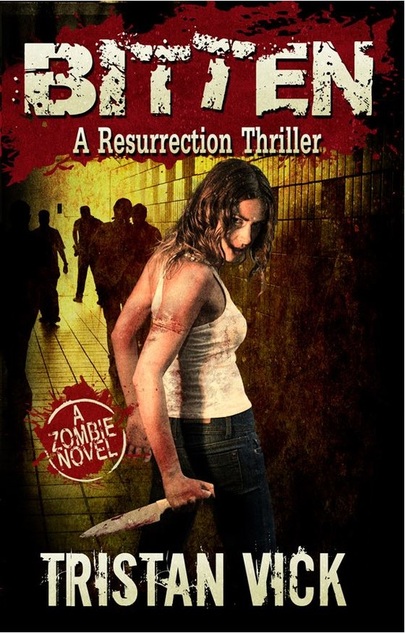 Here is the spiffy revamped cover for Bitten: A Resurrection Thriller. I was never satisfied with the quality of the book. A year ago I was new to the self-publishing Indy market. I didn't even know how to use KDP or CreateSpace's publishing platforms. I rushed to get my book out and made tons of rookie mistakes. Thanks to the ease of digital on demand publishing however, I am able to remedy all the mistakes I made with Bitten. The book has been entirely revamped. It has been professionally edited. I had new test readers go over it. It was reformatted. And the paper back edition was overhauled to reflect my original version. Streetlight Graphics did an excellent job following my dictator-like instructions (yes, I'm a control freak). But they always managed to give me exactly what I asked for. So if you already downloaded Bitten: A Resurrection Thriller before April 12th (2013), there is a Kindle update which will provide readers with the newest version. If you thought the book was a bit shoddy, or needed some further proofreading, this new one is practically error free! I say practically because after three test readers and a professional edit there was only one typographical issue which anybody found... and this issue was corrected for the new print edition. Bitten: A Resurrection Thriller (Deluxe Edition) is available for Kindle now. The revised paperback will be released on April 20th (so you will want to hold off on ordering a paperback copy until then is you want the deluxe edition). Stay tuned for more updates! 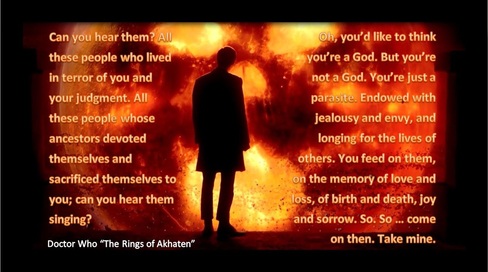 I only started watching Doctor Who last year. Friends have been telling me for years that I'd love the series, and that I ought to watch it. But, for whatever reason, I hadn't gotten around to it until this past Christmas. I took a wild stab and started with season two of the new series. Little did I know this was the best place to start, as this begins with David Tennant's incarnation of the Doctor. Also, I by chance, lucked out of skipping season one and then coming back to it later, and I'm so glad I did too, because that season was, in my estimation, less than impressive. So much so that I feel it would have soured me for the rest of the series and I only would have reluctantly continued watching, if at all. So I burned through all the Tennant episodes, watching the 10th Doctor and Rose, then onto Martha Jones, and Donna Noble. It was epic. As I was viewing re-runs on WowWow (the HBO/Netflix of Japanese paid viewing) I had no choice in the omission of Christmas specials, and had to track them down later. Also, they ended at season 3 of Tennant's episodes so I began series five, with Matt Smith as the 11th Doctor, before finishing series four. All very confusing, I know. But I fell in love with Matt Smith's Doctor right away. And the fact that season five is written like a fairy tale was so well tailored to this new Doctor Who universe that I fell in love with Stephen Moffat's vision of the Who Universe. But more than this, I am head over heels in love with Karen Gillan who plays Amy Pond. As if I ever stood a chance in hell. Now, many people loved the David Tennant Doctor because he was handsome, charming, and a dash overly romantic. I liked him fine, but there were times where he seemed too much of a sentimental sap. Other times he would go into "rage" mode and wanted to kill everyone and everything that defied him. Other times he was mellow, sociable, and other times he had such a God complex that I could hardly stand him. The tenth Doctor was always on the verge of a mental and emotional breakdown, it seemed. And although that made for interesting drama, I found it also made the character a little less than believable. Don't get me wrong, I like flawed characters as long as they are written consistently. Dr. House, perfect example. But the tenth Doctor was sometimes a bad-ass and sometimes a bit wishy-washy, and this made for some major eye-rolling. So when Matt Smith came along, and played this eccentric, brilliant, alien entity who was trying to act normal, but suffering a bit of awkwardness in every attempt, made him enduring. His rage is more on the sleeve, making him less emotionally compromised and more direct in his intentions. I like the fact that Smith can play the character as both somewhat of a doofus but a super-genius all at the same time. I like how he genuinely seems to love children. As a father, this is a quality I think all benevolent beings would inherently have, and I'm sorry to say, David Tennant's doctor seemed to lack such a quality. I like character stories, and the new Doctor Who episodes are mostly about character. This is good for a newcomer, because it makes the whole Doctor Who universe (all fifty years of it) less overwhelming. I don't need to know all the details which most Whovians know inside and out. All I have to do is sit back and watch great performances, spot-on dialogue, and first class television writing and production. All of these things combined together made me an instant Doctor Who fan. It's only been less than a year, but I am caught up on all the new Doctor Who episodes. I don't have any inclination to go back and watch all the old ones, although I may be apt to check a few out. The real question becomes, which do I like more, Original Trek or the New Who? It's hard to say. I grew up with Star Trek, and although I am adamant about my excitement for Doctor Who, I have to tread carefully. Although they are both sci-fi, they represent different ends of the genre's spectrum. Star Trek is hard sci-fi and Doctor Who is soft sci-fi, meaning, it strays away from the actual science when it suits the plot instead of trying to stay true to science and force the plot to adhere to it. It's not a bad thing, but it means Doctor Who is more fantasy driven. In the end, I like both equally, for different reasons. 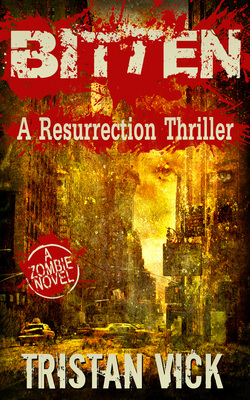 BITTEN UPDATE! Anybody who has bought the KINDLE version of my novel Bitten, there is an update. It will upgrade the book to the DELUXE edition with SIX new chapters and significant editing changes. AMAZON'S MESSAGE ON HOW TO UPGRADE An updated version of your past Kindle purchase of Bitten by Tristan Vick is now available. This book has undergone significant changes, so any bookmarks, notes, or highlights you've made will not transfer over to the new version of the book. The updated version contains the following changes:
You can get the updated version of this book by going to Manage Your Kindle. Find the book in your Kindle Library, click on the "Update Available" link next to the book's title, and then follow the update prompts. All your devices that have the eBook currently downloaded will be updated automatically the next time they connect to wireless. We thank you for your business with Amazon. Sincerely, Customer Service Department KDP/Amazon.com 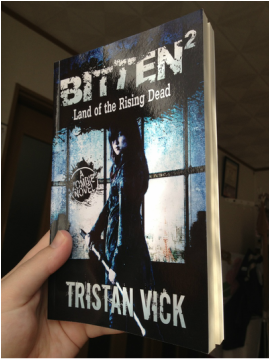 Just received my complimentary copies of Bitten 2. I will probably sign them and sell them to those that want a special autographed edition. Speaking of which, if you too would like a special signed copy of my novels, you can click on the Store button (under More...) and purchase a copy directly from me. |
Tristan VickBy day I am an educator and a cultural ambassador. By night I entertain notions of being a literary master. In reality I am just a family man and ordinary guy who works hard and loves writing just about as much as I love my family. Just about. AVAILABLE NOWNEWSLETTER
|

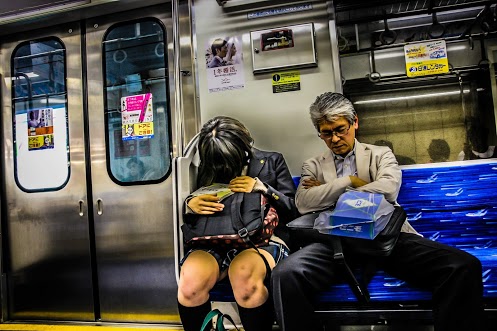


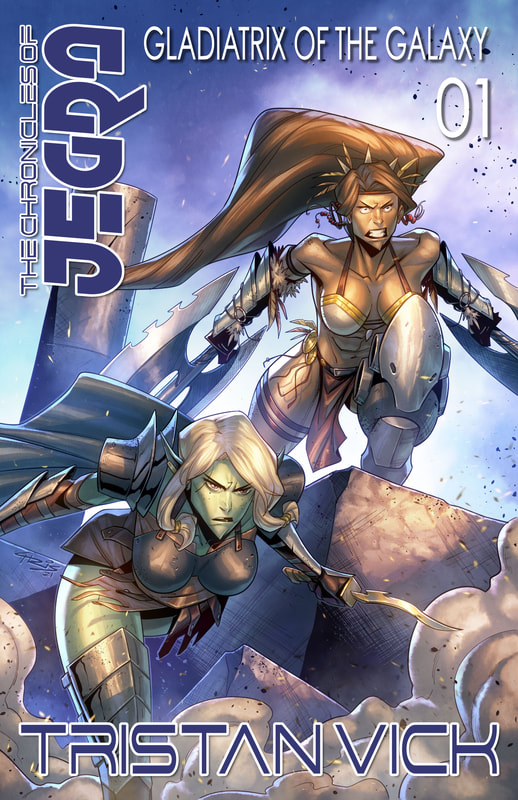
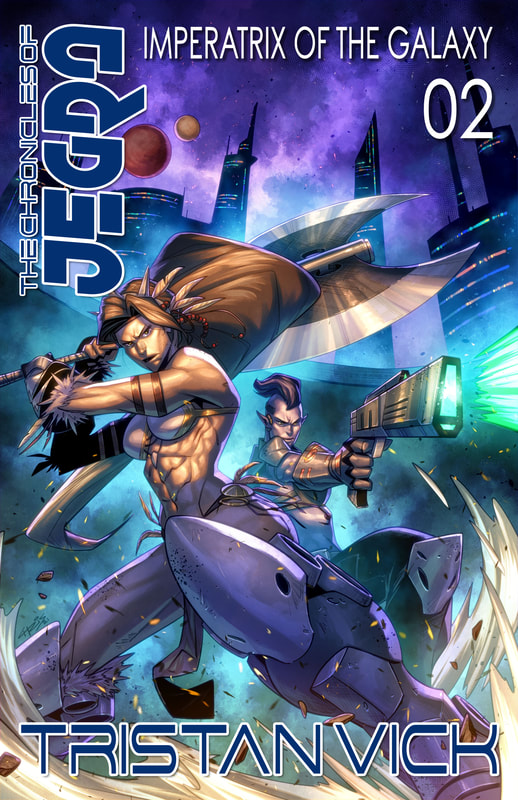
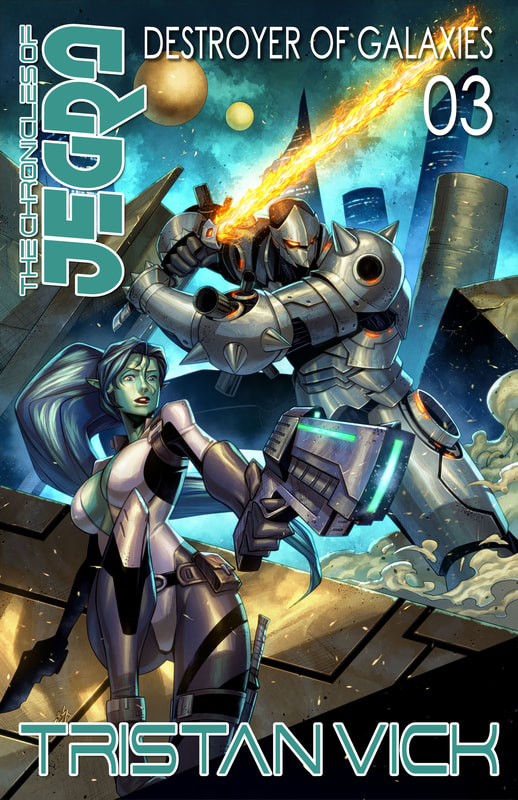
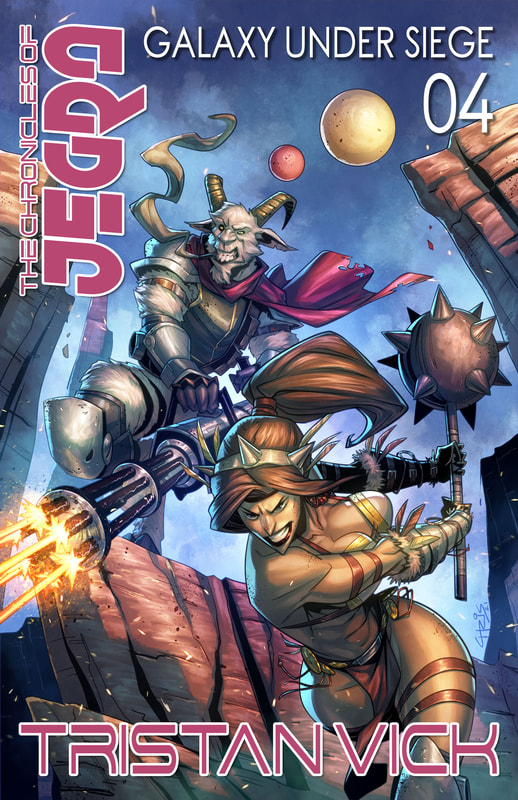
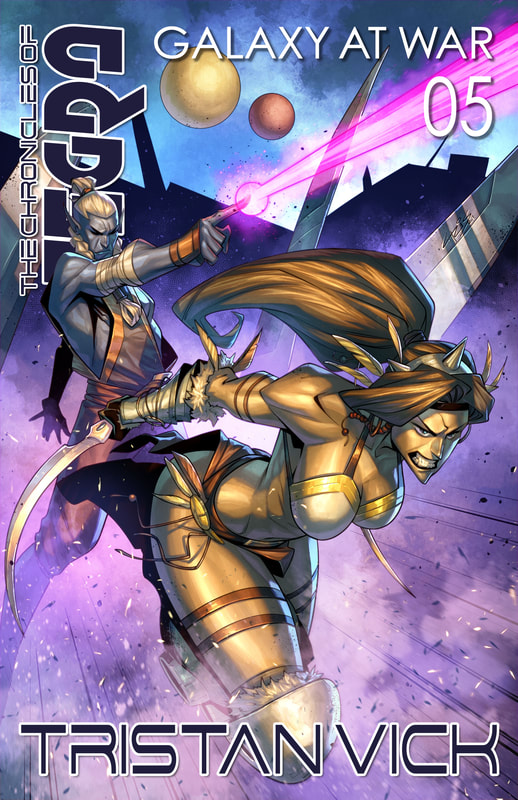
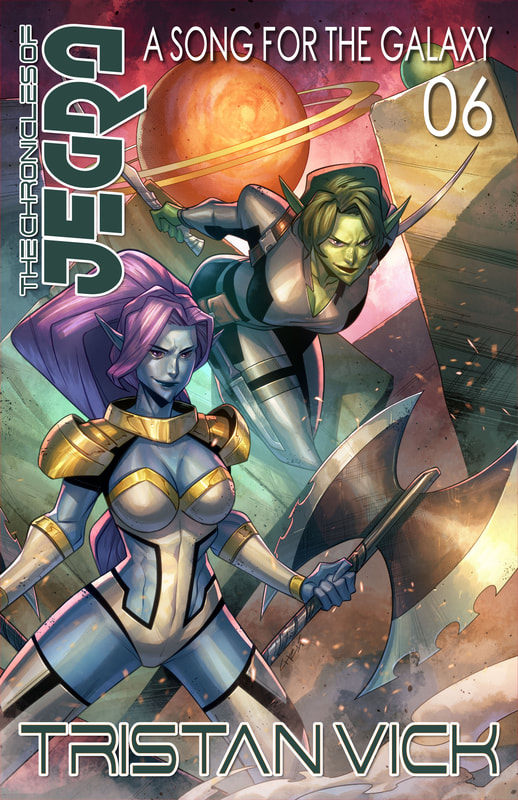
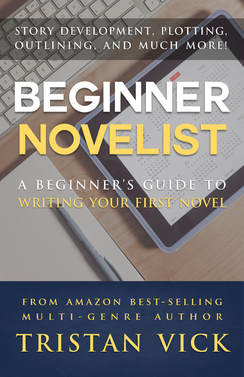
 RSS Feed
RSS Feed
